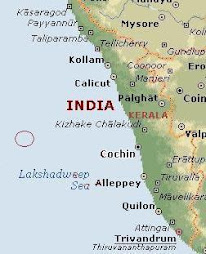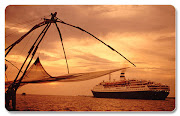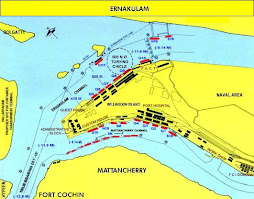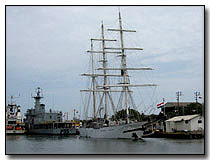(V.M. Syam Kumar, Advocate, High Court of Kerala)
Every
branch of law has its own share of land mark judgments. They are important mile
stones in the evolution of law. Teachers teach them with emphasis and students
study them earnestly. The study of law of tort is thus incomplete without
reading Donogue V. Stevenson. Similarly, Constitutional law
cannot be taught excluding Marbury v.
Madison. Students of Contract law cannot ignore Carllil v. Carbolic Smoke Ball Co. and Company law demands deep
acquaintance with Salomon v. A. Salomon
& Co. They are cases which are to be chewed, eaten and digested at the
law school. Maritime law too has its own fair share of land marks to offer. The
House of Lords decision in MV Indian
Grace is one among them.
Whatever
cult status these legal land marks may have had at the law school, they are
soon forgotten when we are out of the law school. The name of the case may
still ring a bell, but the specifics may no longer be retained. Practice as a
lawyer throws up other important legal norms of contemporary relevance to be
remembered and the earlier land marks gradually fade from memory. They have
only ‘academic relevance’ now.
Further as most of these land marks are antiques from by gone times, they are
seldom cited as authority of value since much water might have flown
thereafter. At the best, a passing
reference may be made to them in a case of comparable facts or legal issues.
That too only before a so called ‘academically
inclined judge’, whose creed is fast vanishing.
Never
in our wildest dreams do we expect to be part of the said land mark judgments
or to get an opportunity to argue them out afresh. Who would expect to get to
argue Donoghue V. Stevenson in the court room all over
again as a lawyer for one of the
parties to the dispute. We presume,
and rightly so that the ginger beer consumed
by Mrs. Donoghue would have long been
digested with or without the snail and the smoke balls that Mrs Louisa
Elizabeth Carlill had purchased to cure her aliment of flu would not survive
beyond the date of the judgment in Carlill
v. Carbolic Smoke Ball Co.
Similarly,
while at law school I had like all my class mates expected that MV Indian Grace would have completed her
voyage long back and all legal issues involving her cargo of shells and
cartridges would have been laid to rest with the House of Lords decision. We
presumed that the shells and cartridges carried on board MV Indian Grace for use in the Bofors howitzer guns acquired by
Indian armed forces would all have been expended on our enemies at the
borders. Dr. A.M. Varkey our professor
at Law school had made each of us read through the MV Indian Grace decision over and over again to impress upon the
nuances of admiralty jurisdiction and the vexing issues concerning in rem and in personam actions involved therein. Like the rest, I expected MV Indian Grace to be relevant only for
what is contained in the House of Lords decision. I was utterly wrong in presuming so.
By
some strange twist of fate, after enrolling as a lawyer I had to be party to
the final legal voyage of MV Indian Grace and was called upon to
defend her based on those very same issues and facts about her and her cargo
which I had learned by heart at the law school.
It
all started one day with a dusty and shabby case bundle which I saw resting on
my table upon my return from the court. I had just shifted my practice to Kochi
and had joined the law firm Southern Law Chambers. I had had a prior stint as a
junior to the legendary maritime lawyer S. Venkiteswaran in the Admiralty Court
of Bombay. After my return I had just started attending the firm’s work and the
bundle had been placed on my table at the instructions of the Senior Partner.
It carried a note that I shall study the file and be prepared to argue the case
as and when it comes up for hearing. It was clear that the green horn from
Bombay with a Masters degree in Maritime law and bearing the tag of being the
junior to the best maritime lawyer in India was being put to test. I carried
the file home for study and slept over. Early morning next day, I proceeded to
open it up and the contents revealed a suit filed by Government of India to
recover some amounts from a company by the name M/s. India Steam Ship Company
purportedly towards damages for the alleged short landing of some military
equipment. The suit had been decreed and the defendant shipping company had
come up in appeal before the High Court of Kerala challenging the judgment and
decree of the Subordinate Judge, Cochin. The plaint disclosed the name of the
vessel in which the cargo was carried and owned by the defendant M/s. India
Steam Ship Company as MV Indian Grace.
The
initial feeling that possessed me on reading the name MV Indian Grace was more that of a cheeky little surprise. What
kind of coincidence could it be that there is another vessel bearing the same
name as the legendary Indian Grace. I
proceeded find out by reading through the dusty and worn out bunch of documents
in the bundle. There was nothing in them connecting it to the House of Lords
decision in the classic English case of MV
Indian Grace. It spoke nothing about action in rem or action in personam
and it related only to a simple suit for damages filed in the Subordinate
judge’s court of Cochin. So this could
never possibly be the same ship MV Indian
Grace about which every student of maritime law across the world is taught.
Later
that day, I consulted my colleagues at the firm and asked them about the dirty
bundle. All that they knew about it was that it is an old file that had been
lying there since years and that the every time the matter came up for hearing,
it was being adjourned by the Government Pleader. None of them knew about MV Indian Grace and the strange
similarity that the subject vessel in the file bore to the land mark decision.
As
I had by then forgotten the specifics of the
House of Lords judgment in MV Indian
Grace, I decided to consult Christopher Hill the acclaimed author of
“Maritime Law”. What I read left me startled. This is what he had to say on MV Indian Grace:
“A case on the point is the Indian Grace
(1998)1 Lloyd’s Rep. 1 HL. The plaintiff cargo owners brought proceedings
against the owners in the Court of Cochin and then brought an action in rem in
England. Subsequently judgment was delivered in Cochin. In due course owners
submitted to the jurisdiction of the Admiralty Court. The plaintiffs threatened
to arrest the vessel and security was provided. The issue was whether the
England action in rem was ‘between the same parties or then privies’ within the
meaning of sec. 34 as the action in which the plaintiffs obtained judgment in
Cochin. When English action in rem was launched no judgment in personam in
Cochin had yet been obtained; .....The English action was struck off. The case
has been criticised by leading authors.”
So
the bundle in my hand was the appeal from the judgment of the Subordinate
Judge’s court Cochin, which had been relied on by the House of Lords to strike
off the English action. Issues in MV
Indian Grace were thus still alive and kicking. The thrill that I
experienced cannot be described in words. Here I had that once in a life time
opportunity of pursuing further a case of classic genre. I set to task at once.
I
rushed to the only place in the entire State which then had the Lloyd’s Law
Reports, the most authoritative law reports on shipping cases from across the
common law world, viz., the library of old High Court of Kerala at the Ram
Mohan Palace. I knew from my daily visits, the exact place where the Lloyd’s
Law Reports were stacked. No one came to that part of the library and the
Lloyd’s Law Reports starting from 1918 to date remained neatly stacked in
undisturbed slumber since ages. The book rack had by its side a window and one
could stack books on its side, sit next to it and read. There was no electric
fan over head but the gentle breeze that comes in once in a while through the
window made reading there a pleasurable experience. For weeks, I spent all my
afternoons perched on that window reading through the reports, ofcourse
starting with the House Lords decision in Indian
Grace.
The
appeal to be argued before the High Court of Kerala though arising out of same
facts was different from the legal issues considered by the House of Lords.
Factual aspects as brought out during trial at Cochin assumed more relevance in
the appeal. Comparing and confirming the factual observations in the judgment
of the House Lords with the documents available in my bundle became by
favourite enjoyment. The fire on board and the valiant efforts by the Master to
put off the fire risking his life were all revealed from the documents. That
the fire was not due to the actual fault or privity of the carrier and that the
carrier was entitled to rely on the exception in the bill of lading was very
evident.
The
decision of the House Lords in MV Indian
Grace had deeply affected the features of the in rem action till then exercised by English Courts. It was so
important a land mark that, authors identified the different phases of legal
growth by terming them as period before MV
Indian Grace and after MV Indian
Grace. Higher courts across the Common law world took note and relied on
the decision in MV Indian Grace.
Acknowledged experts on Maritime Law like A.M. Sheppard opined in their
treatises that the decision was capable of drastically affecting some features
of the action in rem followed in
England till then. Since the House of Lords had relied on the Judgment of the
Subordinate Judges Court Cochin in striking off the English action, the
correctness of the said Judgment of the Sub court to be considered by the
Kerala High Court in the appeal assumed relevance.
To
my excitement the appeal was finally posted for consideration before a division
Bench of the High Court of Kerala. After a fair share of adjournments from the
part of the Government, the matter was taken up for final hearing and disposal.
The senior presiding Judge being a former Civil Lawyer of standing and repute
picked up the relevant facts deftly. The appeal was heard for days together.
After noons were specifically set apart for exclusive hearing of the appeal.
Carriers liability and intricacies of the term “actual fault and privity of the carrier” were considered by the
Judges in detail. Scores of reports on the point from Lloyds Law Reports were
placed before the bench by both sides. The response from the Bench was
encouraging. It appeared that the Bench was convinced about the protections
that the carrier and the vessel are entitled to under law. An important
Judgment as a sequel to that of the House of Lords was in the immediate offing.
But
before the Judgment could be rendered, to my dismay, the appeal was transferred
to another Division Bench. We were back to square one. The presiding Judge here
was a seasoned lawyer well aware of commercial legal practise. The Bench echoed
the views of the earlier bench. Hearing went on for days. It would start off
with a quip by the Judge, “Lets sail with
Indian Grace.” Both sides argued in detail. Senior lawyer in the rank of
Assistant Solicitor General of India appeared and argued for the Government.
The Judge gave a peek of his mind by opining that the precedents and facts
called for interference with the judgment of the sub-court. After days of
lengthy hearing the new Division Bench proceeded to reserve the matter of
dictation. We eagerly awaited a judgment capable of reporting across the
maritime world from Kerala High Court, one that would be taken note of by
English Lawyers and maritime experts.
But
MV Indian Grace was not destined to
have a smooth legal journey. Before the date on which the judgment was to be
delivered, the case was posted before the Bench by a process called ‘to be
spoken to’. It was submitted on behalf of the Government of India that an
amendment is proposed to be moved to hike the claim amount which at present was
only for the short landed cargo. The Attorney General of India had in view of
the failure of the English action, apparently suggested claiming a constructive
total loss of the entire cargo and thus to enhance the claim amount from few
lakhs to crores of Rupees. The rendering of judgment was thus sought to be
adjourned to facilitate the filing of the amendment petition and the same was
allowed. I had no reason to feel alarmed as the earlier two division Benches
had been convinced of the case and was eager to render a detailed judgment
touching upon all aspects of the case.
Within
a week the appeal came up before another division bench. The suggested amendment had not yet been
carried and instead of seeking time for pursuing the same, the Government
pressed for urgent hearing before the new bench. The hearing of MV Indian Grace thus commenced before the third division bench. Suffice to say that the
Bench wound up the hearing within twenty five minutes and proceeded to deliver
judgment dismissing the appeal.
Winning
the appeal though was a prime objective was not the sole objective. All through the hearing the single minded and
earnest desire was that the judgment from the High Court of Kerala based on the
detailed arguments placed by both sides touching on importance question of
maritime law and carriage of goods by sea would lead to a judgment that will be
a befitting sequel to the decision of the House of Lords in MV Indian Grace. The judgment that was finally rendered ran to
less than four pages and carried a sentence to the effect that though numerous
foreign decisions were placed before the Bench the same are not felt relevant
to be discussed. Thus ended the long journey of MV Indian Grace.
I
returned to office carrying the bundle which had now become huge with numerous
copies of decisions from Lloyds reports.
I was visited by my senior partner with a comforting smile. He shared
with me the wisest advice which I treasure all through the rest of my career.
First one was “Never identify personally
with the subject matter of your case however interesting it may be.” This
was followed by a very practical advise which went like this. “When a case that had been heard at length by
a Bench and is expected to be decided in your favour is sought to be adjourned
by the opposite side, pray to the court that the same may be noted on file as PART
HEARD.” This would have ensured that the matter would again come up only
before the same Bench!
I
realised that my theoretical knowledge of maritime law and my rummaging through
volumes of Lloyds Law reports are no substitute to practical lawyering skills
which can be acquired only through years of patient dedicated practise.
Let me leave you with a sequel to this story.
Around ten years after the above experience, at a private function I ran into
the same Judge who had heard the MV
Indian Grace appeal on its second round. He had since retired and to my
surprise very well remembered the quip of sailing with Indian Grace. He told me that he had already dictated a detailed
Judgment allowing the appeal filed by MV
Indian Grace and same was not
typed out and issued since the matter got adjourned.
***



























